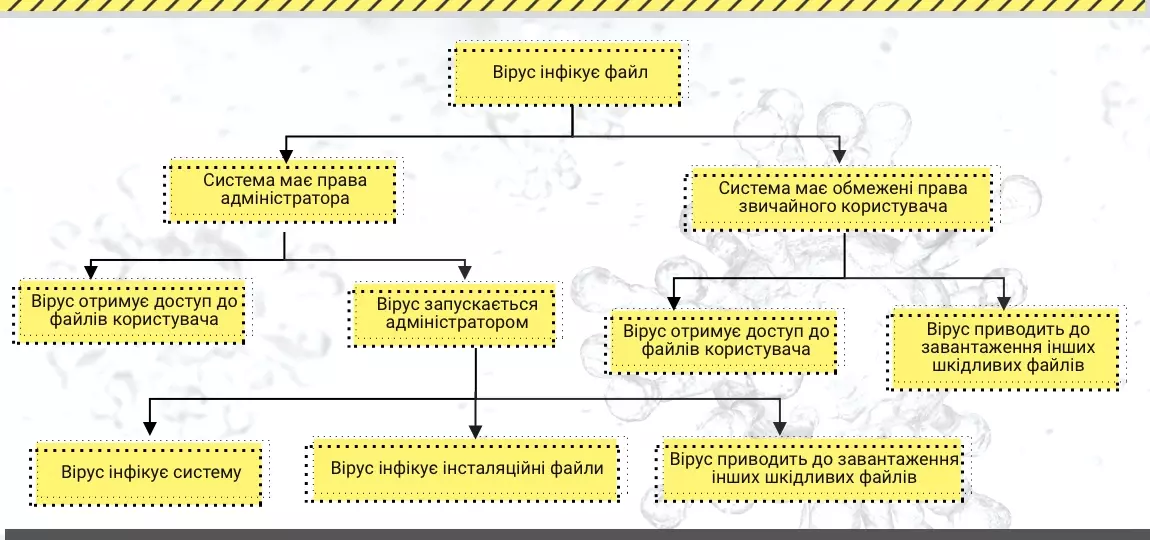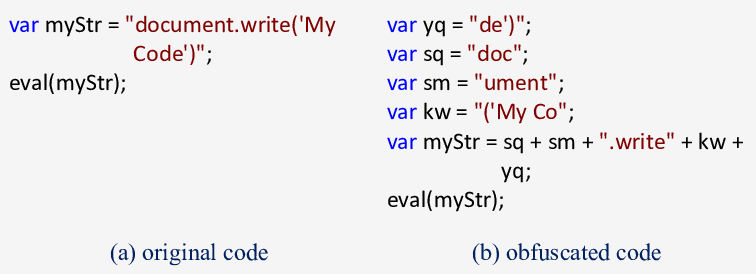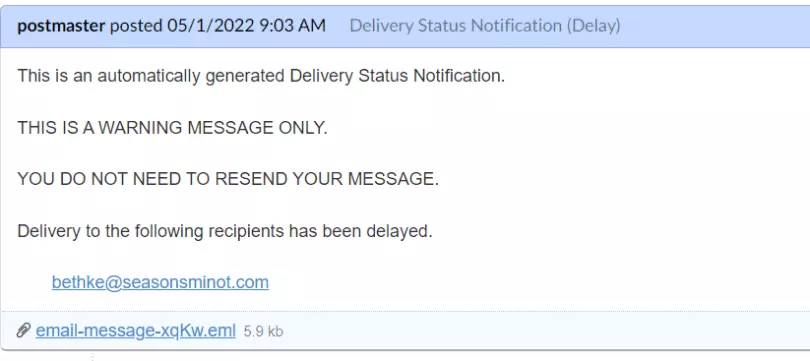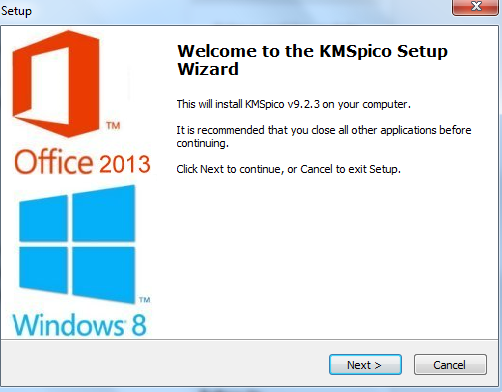
What is a computer virus?
History of computer virus
Computer viruses were one of the firstlings in the malware world. First widespread malware was, exactly, the Creeper virus. It was created by Bob Thomas and designed to infect a DEC PDP-10 - one of the most massive computers of that time (1971). Mr. Thomas created it without malevolent intent - to show his colleagues how such programs work. However, the Creeper virus did the same thing his modern brothers-in-arms do - replicating his code into other programs. That led to making the inflated programs malfunction and the hard disk overflow.

Virus did not become a massive malware instantly. Like any other malware, it was failing to become massive because of the spreading problems. Sure, it's quite easy to infect the computers on your uni’s campus, but almost impossible to do that in other places. Until the wide spreading of the Internet connection, viruses were distributed on floppy disks - together with multiple other programs.
In the ‘00s, after the Internet boom, viruses became one of the most widespread malware types in the whole world. At that time, people started calling all malware the viruses - just because the chance that it really is a virus was very high. Common cybersecurity knowledge, weak system security, and the absence of automated ways to remove that lead to the situation when having your computer infected were almost normal. That pushed the development of programs that we know nowadays as anti-viruses.
Read also: Heuristic Virus Detection: How AI-Powered Security Catches Unknown Threats
So what is the computer virus?
Computer virus, as was mentioned in the paragraph above, is malware that replicates its code into other programs and files. Then, this replicated part replicates itself into other files, so the destruction goes exponentially. At one moment, the program stops working and may even fail to start. Finally, it may turn out that your computer fails to do even a thing without calling the error window. In the saddest cases, when the virus damages critical system files, you will see the BSOD when trying to boot Windows.

What is more interesting - viruses were completely unprofitable during this boom. In the ‘00s, there were a pretty low number of malicious programs that could be monetized in any way, but it is very unusual to hear now, in 2022. In those days, the malware was distributed to amuse someone rather than gain money. And in fact, the end of the computer virus domination era was the start of the malware-for-profit epoch, which lasts till these days.
Why did computer viruses disappear?
It is pretty ironic that computer viruses were the stimulus for anti-malware programs to be created, and exactly anti-malware was the force which made the viruses cease to exist. Malware analysts had endured combat with viruses for a decade but finally found a way to stop them all - even the newest ones. They implemented the rule “if it reads a text as a code - it is a virus” - and that was enough to make all attempts of malware creators useless. And they possibly could be more motivated if their job was profitable, but that was much more reasonable to switch on other malware types or even go to a white job.
Sure, viruses did not disappear completely. It is possible to bypass the rule mentioned above by some tricks with obfuscation and repacking. However, there is still no way to monetize a stand-alone virus. It makes the programs and system malfunction - and what’s next? Trying to make money on that thing is hard, but crooks still use it sometimes. Viruses are pretty useful when you need to exploit the vulnerability or to make certain apps malfunction. That’s why cybercriminals sometimes apply using specially created viruses to commit cyberattacks on corporations.

Read also: Virus:Win32/Expiro: The Chameleon Backdoor That's Still Causing Havoc in 2025
Computer virus distribution
In old times, viruses were everywhere when computer viruses were on the malicious Olymp. You could click on the banner online and get one, install a pirated game - and the virus will be included. Even visiting certain websites was not safe - viruses could stealthily get on your PC and launch. Most of these spreading ways are impossible in modern times because the software has much more protection. Yes, malware developers may say for sure that earlier was better.
Nowadays, as was already mentioned, viruses are mostly used in cyberattacks. Hence, their usual spreading ways are the same as spreading ways of the initial payload for attacks on companies. Spamming of different sorts, RDP exploitation, social engineering or even all together simultaneously - all these things are typical for computer viruses spreading. After the successful penetration of the network, the virus is launched together with keyloggers or other things.
More interesting thing is how these viruses are designed. Since anti-malware programs have such a powerful countermeasure, it is impossible to use classic computer viruses. That’s why crooks usually order it somewhere and receive a real Frankenstein child. Most of such malware is ordered somewhere in Asia and then used to commit attacks on the whole globe. These viruses are packed in a very unusual way and have an extremely obfuscated code. Such tricks allow fraudsters to avoid malware detection. Nonetheless, it is better to use a backdoor - it is much harder to detect and easier to make stealthy.
Read also: Shortcut Virus
How to prevent computer viruses?
Getting a computer virus these days is like finding a gold nugget in a pig trough. There is a small chance of getting one when browsing some ancient pages on your old computer. But if you are afraid of getting one - forget about opening suspicious pages and starting the programs from untrustworthy sources. It is not about preventing viruses - it can help you prevent malware. So let’s check them out - to stay aware.
Illegal software is one of the most massive malware sources for individual users. Hacked games from torrent trackers or downloaded directly from websites with “free” games, hack tools, and keygens for various software are the best carriers for malicious software. In particular, stuff like KMSPico is considered one of the most common sources of ransomware and spyware at the beginning of 2026. Forget about using it - and you will significantly decrease the chances of getting a virus.
A new trend in virus distribution is email spamming. Fraudsters send emails that bait users into clicking on the link or opening the attachment. Whatever it is, you will receive malware on your PC after the malicious script execution. Avoiding such emails is difficult: crooks try to make them similar to the original messages from legit companies, like Amazon or FedEx. Thus, it would help if you remembered the only difference they cannot hide - the sender’s email address. Just keep in mind that delivery messages from Amazon will not be sent from [email protected] - they have an official and genuinely-looking email address for that case.
The last piece of advice, which acts rather as a final remedy, is to use anti-malware software. The most effective way to protect yourself is to combine the additional security software and your knowledge. Proper security tools like GridinSoft Anti-Malware will protect your system from computer viruses, spyware, ransomware, or other threats.
Read also: Polymorphic vs Metamorphic Virus


